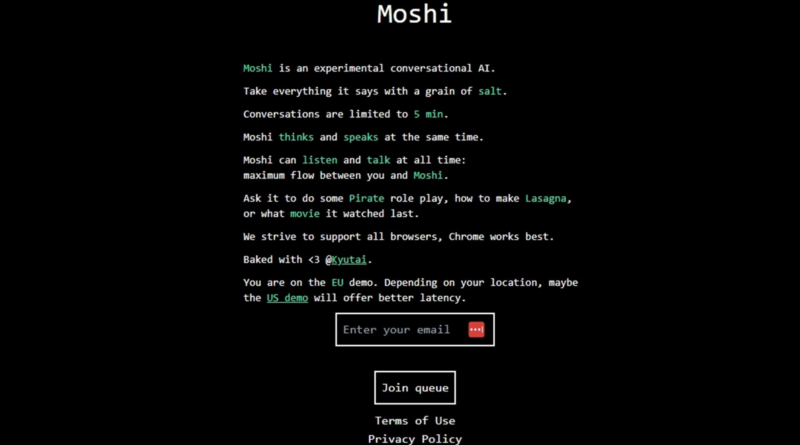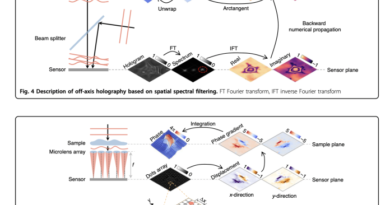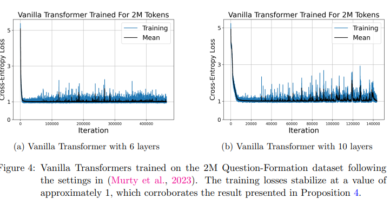Meet Moshi: The AI Chatbot Redefining Human-Computer Interaction
In the ever-evolving world of artificial intelligence, a new player has emerged: Moshi. This advanced AI chatbot boasts features comparable to GPT-4, making it a significant contender in the market. Developed by a team of innovative researchers, Moshi is set to revolutionize the way we interact with machines. Here’s everything you need to know about this groundbreaking technology.
What Makes Moshi Stand Out?
Moshi leverages state-of-the-art language models to deliver human-like interactions. Unlike traditional chatbots that often struggle with understanding context and generating coherent responses, Moshi excels in creating natural and engaging conversations. This is achieved through advanced natural language processing (NLP) techniques that allow Moshi to understand and respond to a wide range of queries with remarkable accuracy.
Key Features of Moshi
- Future Self Conversations: One of the most intriguing features of Moshi is its ability to let users converse with their future selves. Researchers at MIT have developed this feature to help individuals connect with their potential future, enhancing decision-making processes. By creating a synthetic memory of users’ potential future, Moshi makes the future feel more tangible, promoting better long-term decisions.
- Advanced NLP Capabilities: Moshi’s core strength lies in its sophisticated NLP algorithms. These allow the chatbot to comprehend context, infer meaning, and generate responses that are contextually relevant and coherent. This ensures that conversations with Moshi feel natural and intuitive, much like speaking with a human.
- User-Friendly Interface: Moshi’s interface is designed to be highly intuitive, making it accessible to users of all tech-savviness levels. The chatbot can be integrated into various platforms, including websites, mobile apps, and social media, providing seamless interaction across multiple touchpoints.
- Ethical AI Use: Ethical considerations are at the forefront of Moshi’s development. The team behind Moshi has implemented measures to ensure responsible use of AI, including preventing the endorsement of harmful behaviors and maintaining user privacy.
Applications of Moshi
Moshi’s versatility opens up a plethora of applications across different industries:
- Customer Service: With its ability to handle a wide range of queries efficiently, Moshi can significantly enhance customer service operations, providing instant support and resolving issues promptly.
- Personal Assistance: Moshi can serve as a personal assistant, helping users manage their schedules, set reminders, and even provide personalized recommendations based on user preferences.
- Education: By offering interactive and engaging learning experiences, Moshi can support educational initiatives, making learning more accessible and enjoyable for students.
Early Feedback and Future Prospects
Initial user feedback has been overwhelmingly positive. Participants in a pre-print study involving 344 users reported decreased anxiety and negative emotions after interacting with their digital older selves. This suggests that Moshi’s unique features have the potential to make a meaningful impact on users’ well-being.
Looking ahead, the development team is focused on further enhancing Moshi’s capabilities. This includes improving the chatbot’s contextual understanding and expanding its application across more industries. With continuous advancements, Moshi is poised to set new standards in AI-driven human-computer interactions.
Conclusion
Moshi represents a significant leap forward in AI chatbot technology. Its advanced NLP capabilities, user-friendly design, and innovative features like future self-conversations set it apart from other chatbots in the market. As Moshi continues to evolve, it promises to redefine the way we interact with AI, making conversations with machines more natural, engaging, and beneficial.
Stay tuned as Moshi continues to break new ground in the realm of artificial intelligence, bringing us closer to a future where seamless human-computer interaction is a reality.
FAQs
1. How is AI Affecting Human Interaction?
AI is significantly transforming human interaction across various domains. In communication, AI-powered chatbots and virtual assistants like Siri, Alexa, and ChatGPT enhance customer service by providing instant responses and resolving queries efficiently. In social media, AI algorithms personalize content, improving user engagement but also raising concerns about echo chambers and misinformation. Additionally, AI in healthcare allows for remote consultations and monitoring, improving access to medical advice. However, the reliance on AI also brings challenges, including potential job displacement and the ethical implications of data privacy and decision-making biases.
2. What is ChatGPT, the AI Chatbot That Everyone is Talking About?
ChatGPT is an AI chatbot developed by OpenAI that uses the Generative Pre-trained Transformer (GPT) model to generate human-like text based on the input it receives. It can perform a wide range of tasks, from answering questions and providing information to engaging in conversation and generating creative content. ChatGPT has gained popularity due to its ability to understand and generate coherent, contextually relevant responses, making it useful for customer service, content creation, and personal assistance.
3. What Type of AI Model Does ChatGPT Use?
ChatGPT utilizes the Generative Pre-trained Transformer (GPT) model, specifically versions like GPT-3 and GPT-4. These models are based on deep learning and are trained on vast amounts of text data to understand language patterns and generate human-like responses. The model architecture involves transformers, which are neural networks designed to handle sequential data and context effectively, enabling ChatGPT to produce high-quality, contextually appropriate text.
Got an incredible AI tool or app? Let’s make it shine! Contact us now to get featured and reach a wider audience.
Explore 3600+ latest AI tools at AI Toolhouse 🚀. Don’t forget to follow us on LinkedIn. Do join our active AI community on Discord.
Read our other blogs on AI Tools 😁
If you like our work, you will love our Newsletter 📰




